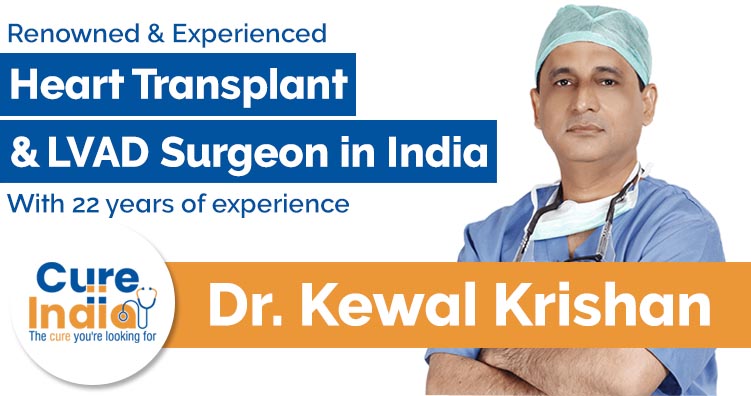

Transcatheter Aortic Valve Implantation, or TAVI, is a minimally invasive procedure to replace defective or malfunctioning. It is a standard procedure that helps treat valve defects, and people worldwide, including in African countries such as Tanzania, Ghana, Ethiopia and Kenya, visit India for cost-effective and quality TAVI treatment. This is primarily because of the low-cost TAVI procedure. Also, when you see India, you can access some of the world-renowned orthopaedic surgeons, cutting-edge infrastructure, advanced equipment, and skilled medical staff to ensure accuracy, efficiency, and the highest safety standards.
So, if you are searching for a high-quality yet affordable transcatheter aortic valve replacement procedure, India can be your ideal option. Below on this page, we will discuss some of the most essential details of transcatheter aortic valve implantation in India, including reasons to perform TAVI, advantages, procedure, cost, and more.
Transcatheter Aortic Valve Replacement, or TVAR, is an excellent alternative to open heart surgery to replace the defective aortic valve of the heart. Such a heart condition is also known as aortic valve stenosis, where the heart's aortic valve thickens and becomes stiff and narrow. Due to this, the valve fails to open correctly, resulting in a valve leading to reduced blood flow in the body. TAVR, or TAVI, is a popular alternative to the open aortic valve replacement procedure that most skilled doctors recommend to their patients. Also, hospital stays in transcatheter aortic valve implantation cases are shorter than in open procedures. You may get recommended for a TAVI or transcatheter aortic valve implantation in India if you have any of the below-mentioned indications-
Transcatheter Aortic Valve Implantation in India is a minimally invasive procedure that helps to pass a human-made aortic valve through a catheter to replace the defective aortic valve in the heart. It is an advanced method of treating aortic valve stenosis. TAVR procedure has more than one benefit to offer, and below we will discuss them in detail-
TAVR, or Transcatheter Aortic Valve Replacement, uses a catheter to pass the artificial heart valve through a small incision. The artificial valve, or TAVR valve, can replace the original valve. These TAVR valve devices can be distinguished into different types. So, if you are going to get a TAVR treatment, you must learn about the different kinds of transcatheter aortic valve implantation valves. Below, we will discuss the different kinds of TAVR valves briefly for your knowledge-
Self-expandable TAVR valves are a common type of TAVR valve. These TAVR valve types do not have balloons and expand independently. A self-expandable TAVR valve can replace the original aortic valve to reduce symptoms associated with aortic valve stenosis. There are three primary self-expandable TAVR valve manufacturers in India:
Balloon-expandable valves are a more traditional type that was launched before the self-expandable TAVR valves. As the name suggests, these valves contain an inflatable balloon that can be expanded once the catheter places the valve in the correct location. There are two types of balloon-expandable valves that exist—
Transcatheter aortic valve implantation in India is minimally invasive and helps treat aortic valve stenosis without major surgery, such as open heart TAVR valve replacement. It also has several benefits. So, before you opt for a few Transcatheter Aortic Valve Implantations, you must learn about the primary procedure. You can consult with your TAVR surgeon to get the details, and below we will discuss the general method of the Transcatheter Aortic Valve Replacement procedure:





The recovery time for transcatheter aortic valve implantation in India is different for each case. It depends on the individual case and one's overall health. For most people, the initial recovery period after the surgery is 2-3 weeks, and complete healing can take 6-10 weeks. A patient should avoid strenuous activities before complete healing after the procedure. One should also make healthy lifestyle changes for faster recovery. In some complex cases, the recovery time can be longer than usual. Consult with your healthcare provider for a more personalised recovery plan.
TAVR procedure costs in India can vary depending on several factors, such as hospital charges, location of the hospital, surgeon's fees, and other medical expenses. India offers world-class TAVR treatment at affordable charges. Generally, TAVR surgery costs in India can range from USD 34,000 to USD 36,000. It is best to consult with your healthcare provider for an accurate cost estimation for an aortic valve replacement procedure. Also, choose a healthcare provider offering a transparent charge breakdown for the transcatheter aortic valve implantation in India.
| Treatment | Cost in India | Stay in India |
|---|---|---|
| Transcatheter aortic valve implantation in India | $34,000 - $36,000 | 25-30 Days |
It depends on your health insurance type and its terms and conditions. Most policies cover TAVR surgery when it is evaluated as a medical necessity. Also, the coverage can vary from one policy to another. Some policies offer full coverage, while others provide partial coverage for the procedure. You should consult with your healthcare provider and insurance provider to learn more about the insurance coverage for your transcatheter aortic valve implantation in India.
